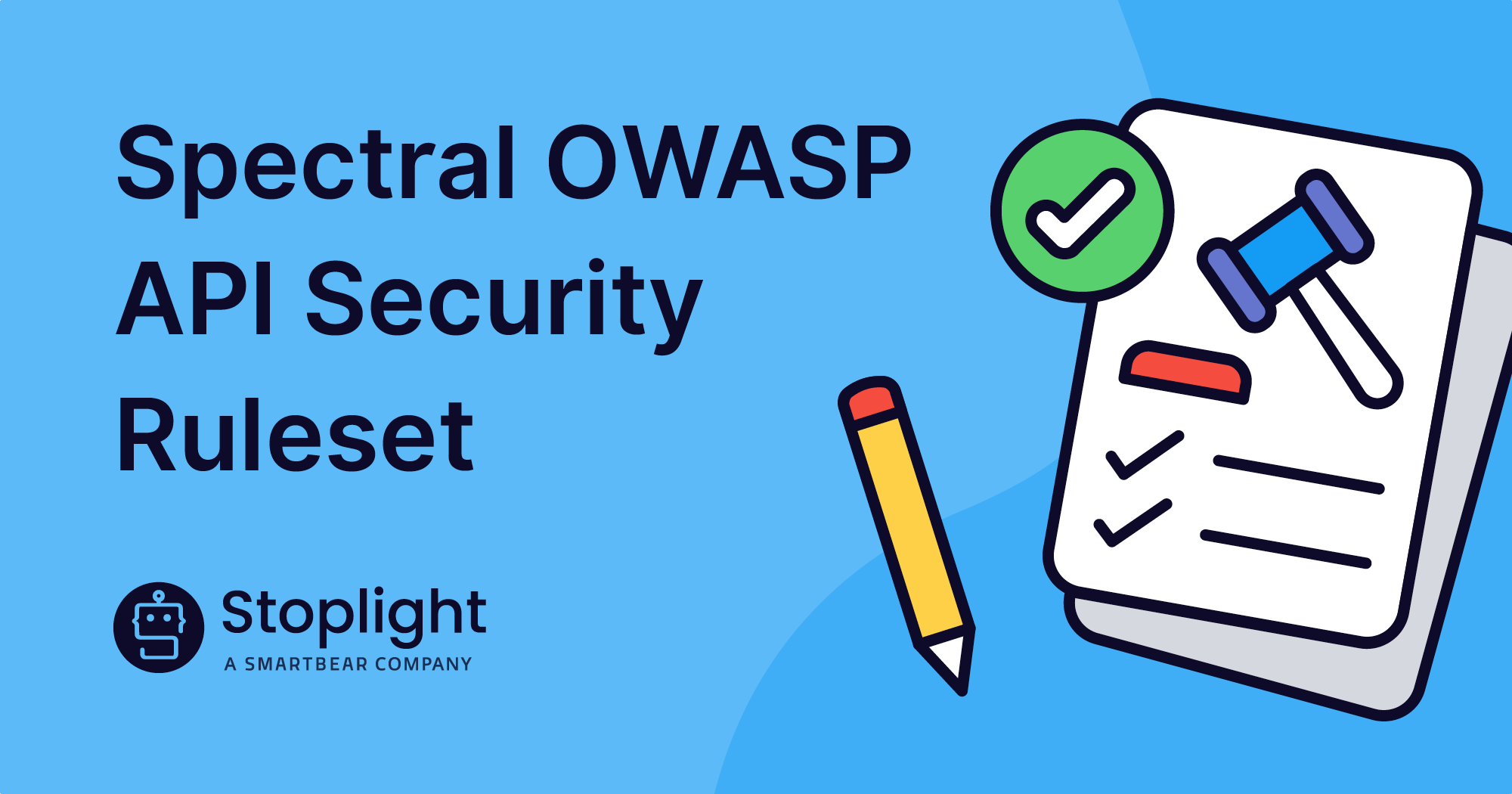It seems like everyone is talking about AI these days, and a lot of the buzz revolves around large language models (LLMs) such as ChatGPT and Bard. If your company builds API products, AI can make them more reliable, efficient, secure, and profitable. If you want to use AI to develop better APIs, a great place to start is API testing.
Start Your AI Journey With API Testing
Testing usually occurs towards the end of the API building process, so why would you start your AI journey there? This way, you can focus your use of AI on fundamentals and experimentation without jeopardizing the quality or performance of your APIs.
What are the fundamentals?
The fundamentals of API testing reinforce the ideal – testing is essential and more testing means better API products. However, testing also creates a bottleneck and a cost center for many companies. Many API teams know they should do way more testing but have a difficult time committing resources to it. API testing is a prime target for efficiency improvements here — and AI can help!
You need to experiment
When you start with AI, you won’t know the right tools to use and best practices to follow. AI is new to you and everyone on the API testing team, so experimentation is the only way forward. It makes sense to start in a well-scoped space like API testing. While AI may be new to you, the challenges of testing aren’t, so you’ll know when AI works well in the process. A great way to encourage experimentation with AI is with the “4 Ps.”
Apply the 4 Ps Framework
Scott Belsky, an executive, author, investor, and entrepreneur known for co-founding Behance recently posted on LinkedIn about how his team started with AI. His strategy is a framework he calls the “4 Ps,” and you can apply it to teams across the business, including API testing teams:
- Play — Give your API testing team access to new AI technologies and tools, allowing them to play around with them despite any potential risks. Also, don’t expect the moon. Let your team figure things out.
- Pilot — Start with a pilot project where the team can apply AI to one area of API testing and learn from it. Have the team apply AI to more areas of testing once the pilot project succeeds.
- Protect — Make sure the objectives or KPIs for your pilot project encourage experimentation. Increasing revenue or conversions is not the goal here. The goal is to learn.
- Provoke — Invite API stakeholders to ask tough questions about the use of AI in testing processes. They might question the ethics or ROI of AI in API testing. Answering tough questions helps you avoid costly mistakes when innovating.
The 4 Ps framework can help you learn how to best use AI in API testing. For most companies, the end goal for AI is improving human efficiency, and API testing is an excellent place to start learning how to do that. Let’s look at a few ways AI can help.
Level Up Existing API Testing Practices
AI is a fantastic tool, but you still need a human touch in your API testing process. API teams can start by using AI to level up existing testing practices. Experiment with AI to improve the data used for different areas of API testing:
- API test planning — You could use an LLM to help you create an API test plan. OpenAPI has trained ChatGPT on massive amounts of web data — data you can leverage to make better plans for testing your APIs. You can ask ChatGPT to generate a test plan that includes setup instructions and several test cases by entering some API testing requirements and a few details on the API’s components.
- Test cases — Enter a few example test cases into an LLM and ask it to create more. Give ChatGPT or Bard a prompt with some guardrails, and it can generate more realistic API test cases and complex test cases. The LLM can also find edge cases your API team may not have considered.
- API tests — With AI, you can dynamically generate API tests, given a data format and a narrative description of real-world scenarios. You can use an LLM to create tests that build upon the knowledge of domain experts. NLP-powered AI can understand and convert natural language test requirements into executable test scripts, making it easier for non-technical stakeholders to contribute to API testing efforts.
Once you’ve started incorporating AI into some of your existing API testing practices, you can begin working on leveraging AI to automate some of your testing processes at a larger scale.
Automate API Testing Processes for Better Coverage
If you want to have better testing coverage and the ability to scale, you’ll want to automate some of your testing processes — and that is where AI shines! AI enables you to automate a wide range of tasks, from test script creation and execution to test reporting and test environment management.
- Test case generation — AI can analyze user behavior, API flows, and code structure faster and more accurately than humans. The AI collects and analyzes data, generating test cases for various scenarios and edge cases. Use AI algorithms to analyze API specifications, such as OpenAPI documentation, and automatically generate test cases based on the expected inputs, outputs, and endpoints. This can significantly reduce the manual effort required to create test cases, and you get a wider range of possible scenarios than with manual test case generation.
- Test execution and reporting — AI-powered test automation frameworks can execute test cases, monitor responses, and compare them against expected results. AI can detect deviations from expected behavior and report anomalies, allowing teams to test the APIs accordingly. AI is great for generating test reports that include charts and graphs. Reports help team members and other stakeholders understand the impact of your API testing efforts.
- Test script maintenance — You can use an AI-based API testing solution for intelligent test script maintenance. AI-assisted test script maintenance tools will edit and refine existing test scripts when API code changes occur, ensuring your testing scripts evolve with your APIs. This reduces the effort required to adapt tests to evolving APIs.
- Test environment management — AI can assist in setting up and managing test environments by provisioning resources, configuring databases, and automating deployment processes for API testing. It can ensure that test environments have realistic data to work with and allow you to automatically scale API testing as the need grows. Some AI-based API testing tools will also automate the scheduling, requesting, and booking of test environments.
When you’re ready to entrust more to AI or want larger-scale testing, these commercial and open-source AI-driven tools may help with automating API testing:
- Functionize – Commercial
- Katalon – Commercial, free plan
- Loadmill – Commercial, free trial
- Mabl – Commercial
- Postman – Commercial, free plan
- ReadyAPI (by SmartBear, Stoplight’s new parent company) – Commercial, free trial
- SoapUI (supported by SmartBear) – Open source
- Testim – Commercial, community-free plans
- Testsigma – Commercial, open source
So, you’ve applied the 4 Ps, leveled up existing processes, and automated some of your API testing practices. Don’t stop there! Take the AI lessons you’ve learned and use them to ensure the security and reliability of all your APIs.
Use AI to Predict API Failure Points and Vulnerabilities
Testing is under the security and reliability umbrella, so you should strengthen your API testing efforts with AI. Use AI to get a different perspective on where to look for problems. Ways you could use AI in testing for strengthened API security and reliability include:
- Predictive Analytics — AI can analyze data from various sources — historical test results, API logs, code changes, user feedback, bug reports — to identify patterns or trends in API performance. This analysis helps testers anticipate potential API issues and prioritize testing efforts, resulting in more secure and reliable APIs.
- Security Testing — You can use AI to identify security vulnerabilities in APIs, such as SQL injection or XSS attacks, by analyzing API request and response data for suspicious patterns or behaviors. An LLM can offer real-world scenarios that serve as the basis for API penetration tests, and AI can help you automate the creation of these tests.
- Load Testing — AI-based load testing tools can simulate thousands of concurrent API requests and adjust load levels dynamically based on system behavior. This helps identify performance bottlenecks and scalability issues. Use AI-powered load testing on many different APIs, including REST, RPC, SOAP, and Hypermedia.
- Anomaly Detection — Use AI to continuously monitor API behavior in production and identify unusual patterns or deviations from the expected behavior, helping to detect issues in real-time. AI can also detect anomalies in API testing results, leading to the discovery of bugs or errors.
AI is ideal for analyzing data and predicting patterns, so it makes sense to use it to find potential API security vulnerabilities and failure points.
AI + API Testing = Better APIs for Everyone
AI isn’t all hype — it’s a powerful tool that can help you build better APIs. Follow the lead of industry experts like Martin Fowler, who have gone out on a limb to show the possibilities of AI in programming, like self-testing code. When you incorporate AI into testing processes, you can ensure the security, performance, and reliability of every API product you make. When you throw in Stoplight solutions and SmartBear products, you can boost team collaboration and efficiency at all stages of API product development. After all, better APIs benefit everyone!

